Is Lanolin Good for Chapped Lips: Unveiling the Benefits
Lanolin, a natural substance obtained from sheep wool, is often recommended for soothing chapped lips. It acts as an emollient, sealing in moisture and aiding in the repair of the skin's barrier. Our lips are particularly vulnerable to chapping due to their thin skin and constant exposure to the elements, which makes lanolin's protective qualities especially valuable.
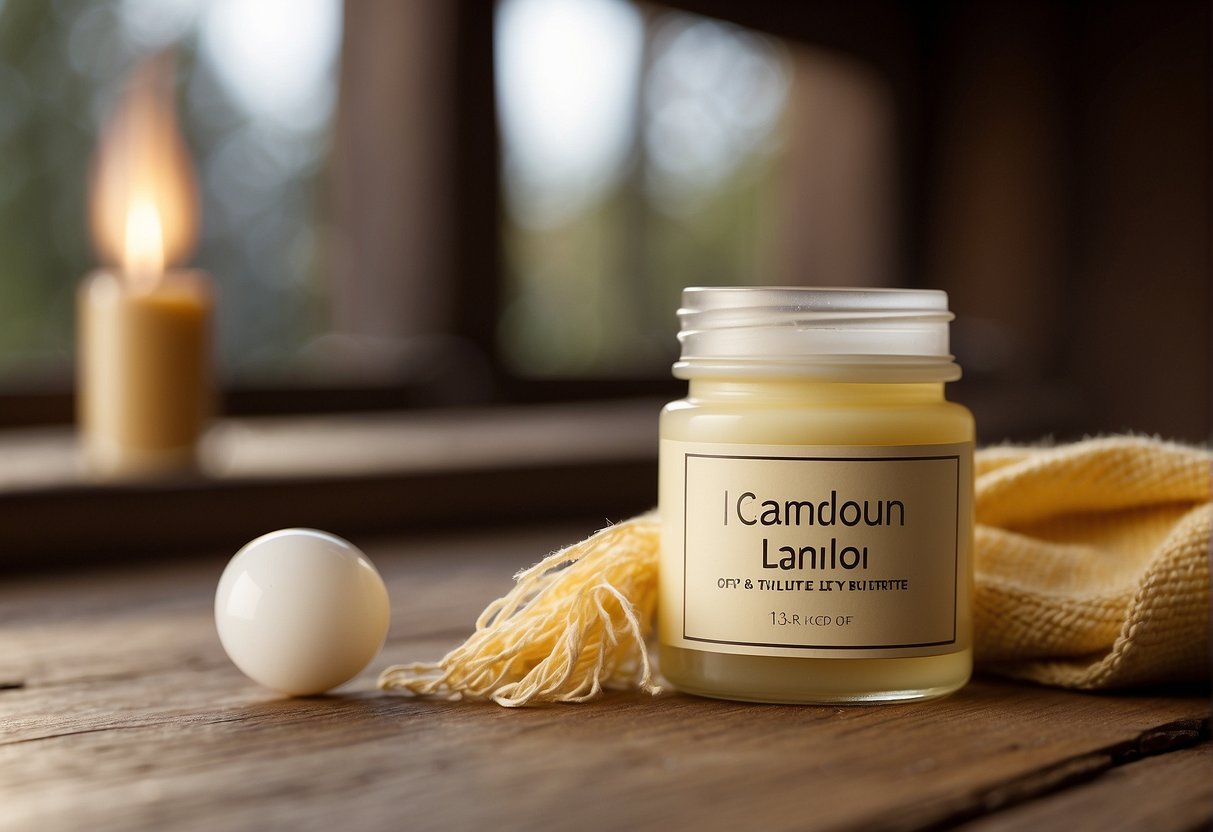
We know that dry, cracked lips not only cause discomfort but can also lead to more serious issues if left untreated. As an ingredient in various lip care products, lanolin provides hydration and can help prevent further irritation. However, while lanolin is generally considered safe for most people, those with wool allergies may experience adverse reactions.
Some individuals raise concerns regarding the taste and scent of lanolin when used in lip care products. Advanced refinement processes have addressed these issues, resulting in lanolin-based lip care items that do not negatively affect the sensory experience.
Key Takeaways
- Lanolin is an effective moisturizer for protecting and healing chapped lips.
- It is important to consider potential allergies when using lanolin-based lip products.
- Refined lanolin has no adverse impact on the taste or scent of lip care products.
Understanding Lanolin and Its Benefits
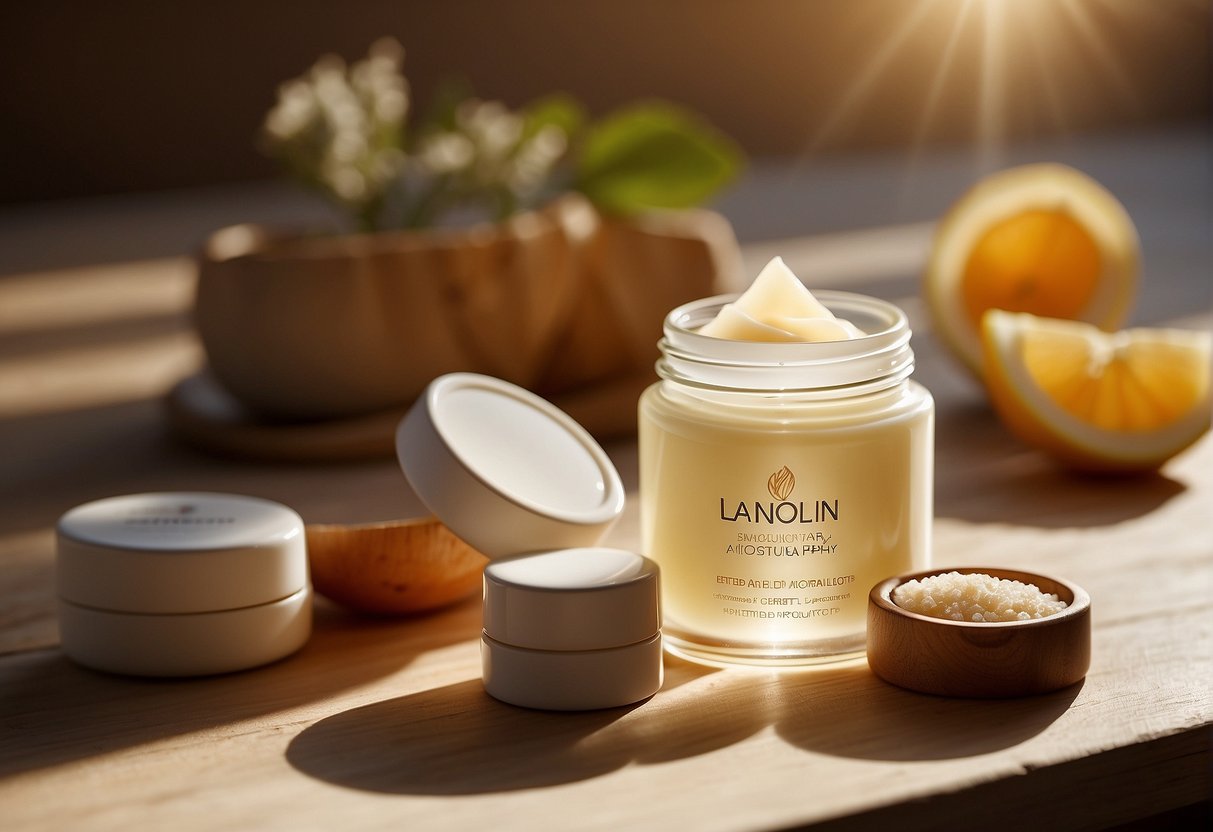
We'll explore the unique aspects of lanolin, a waxy substance obtained from sheep's wool, and discuss its notable benefits, particularly in lip care.
Chemical Composition of Lanolin
Lanolin is a natural wax composed of a complex mixture of lipids, which include cholesterol, esters, and ceramides. These components are crucial for its emollient properties, enabling it to effectively protect and moisturize the skin. Ceramides, in particular, play a vital role in maintaining the skin barrier and preventing moisture loss.
Hydrating Properties of Lanolin
As an emollient, lanolin works by creating a barrier on the surface of the lips that helps to seal in hydration. This barrier not only prevents water loss from the delicate skin on your lips but also aids in maintaining softness and elasticity. The wax's ability to absorb and hold water weighing up to 200% of its own weight makes it an exceptional ingredient for hydration.
Role in Lip Care Products
Lanolin is widely used in lip care products due to its ability to effectively moisturize and replenish chapped lips. Our inclusion of lanolin in lip balms and ointments harnesses its softening properties, providing relief from dryness and promoting the healing process. This makes lanolin-enhanced products a preferred choice for people with dry, cracked lips seeking comfort and restoration.
Identifying the Causes of Chapped Lips
We must consider various factors that contribute to chapped lips, ranging from environmental conditions to personal health and lifestyle habits.
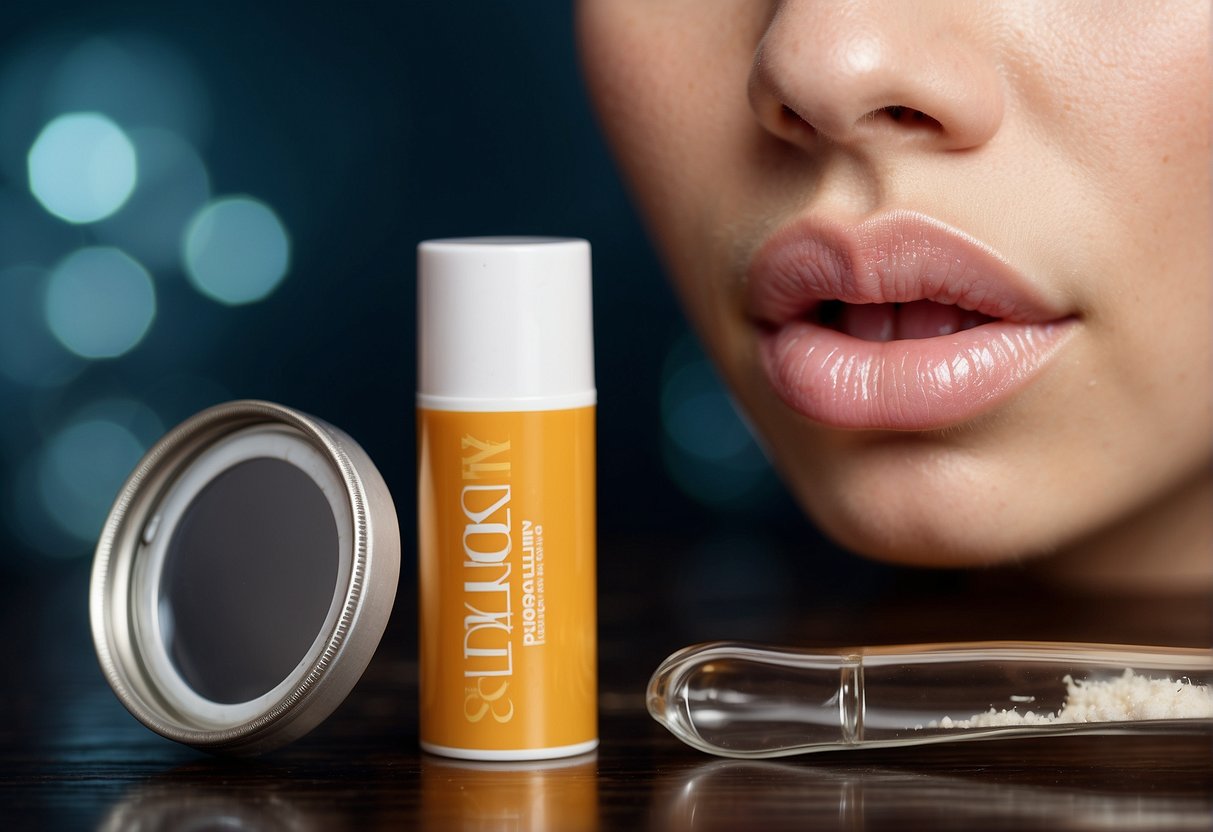
Environmental Triggers
Dry air often leads to moisture loss from our skin, including the delicate tissue of the lips. In particular, cold, windy weather can exacerbate this issue, stripping away the natural protective layer and leading to the dry, flaky texture characteristic of chapped lips. On the other hand, extreme heat and prolonged sun exposure might also damage the lips, leaving them dehydrated and sore.
Health and Lifestyle Factors
Chapped lips can be a reflection of our overall health and daily practices. Dehydration can manifest as dry skin, encouraging the development of chapped lips, thus it's imperative to maintain adequate hydration. Additionally, certain medications, nutrition deficiencies, and habits like frequently licking one's lips can decrease natural lip moisture, contributing to their chapped state. It's crucial to be aware of these factors to prevent and treat chapped lips effectively.
Effective Ingredients for Lip Care
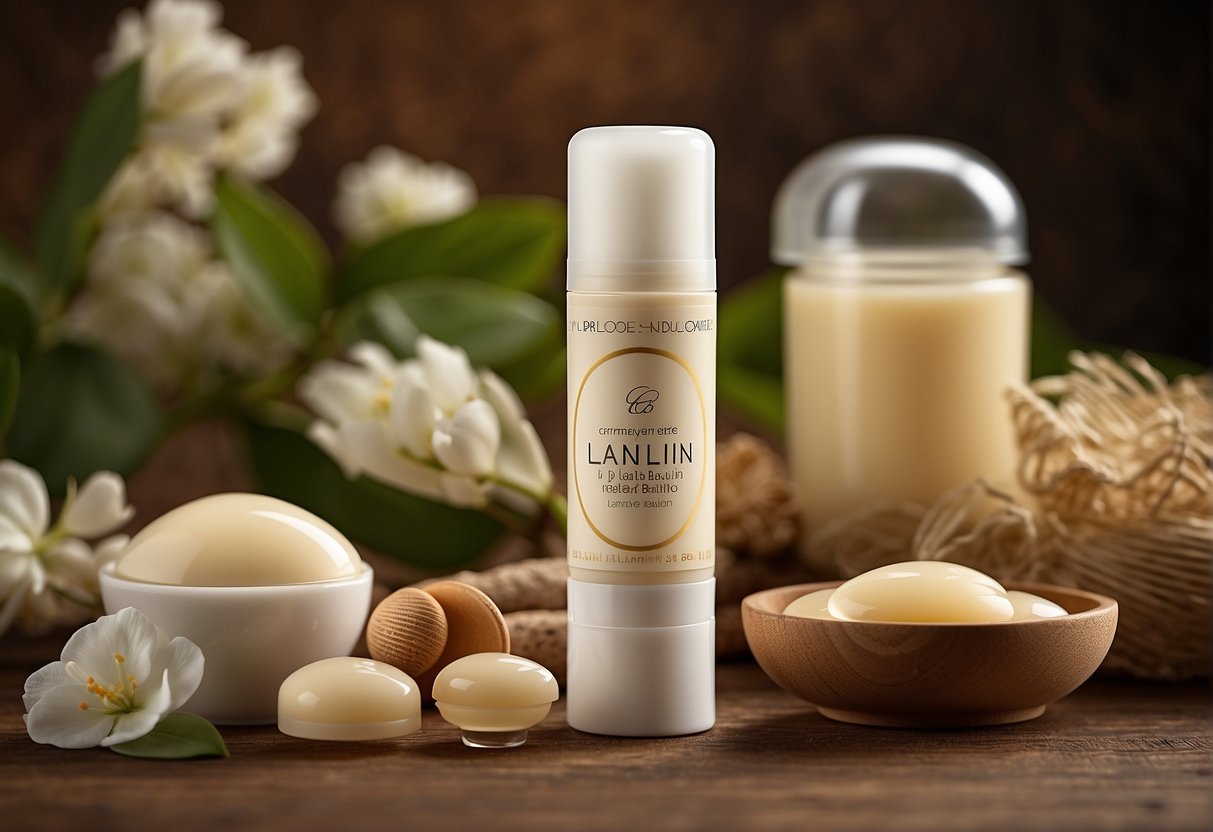
In addressing chapped lips, we recognize the significance of using emollients and hydrating agents that are both effective and soothing. Through careful selection and combination of ingredients, lip care products can achieve optimal results for maintaining lip health.
Comparison with Other Emollients
Lanolin, derived from sheep's wool, excels as an emollient with its ability to mimic human skin oils, providing a barrier that helps lips retain moisture. Compared to other common emollients like petrolatum, lanolin offers a more natural alternative that is highly compatible with our skin. Where shea butter is rich in vitamins and has anti-inflammatory properties, lanolin locks in moisture more effectively. Beeswax and cocoa butter serve as excellent stabilizers in lip balms, providing a thicker consistency that aids in longer-lasting protection.
| Emollient | Benefits |
|---|---|
| Lanolin | Mimics skin oils, retains moisture |
| Shea Butter | Vitamins, anti-inflammatory |
| Beeswax | Thickening, stabilizing |
| Cocoa Butter | Thickening, moisturizing |
| Petrolatum | Forms barrier, seals in moisture |
Synergy with Hydrating Agents
We often enhance our lip care formulations with hydrating agents such as glycerin and hyaluronic acid to complement the moisture-sealing properties of lanolin. Glycerin draws water into the lips, while hyaluronic acid, known for its capacity to hold up to 1000 times its weight in water, can significantly boost lip hydration. When combined with lanolin, these ingredients work in harmony to both hydrate and prevent moisture loss.
| Hydrating Agent | Function |
|---|---|
| Glycerin | Attracts water, hydrating |
| Hyaluronic Acid | Retains moisture, plumps lips |
Additionally, oils like coconut oil and vitamin E serve not only as moisturizers but also deliver antioxidants that protect lips from environmental stressors. Honey offers natural antibacterial properties, ideal for lips prone to cracking and chapping. By utilizing these ingredients, we craft formulations that not only soothe dry lips but also nourish and repair the delicate skin.
Safety and Allergic Reactions
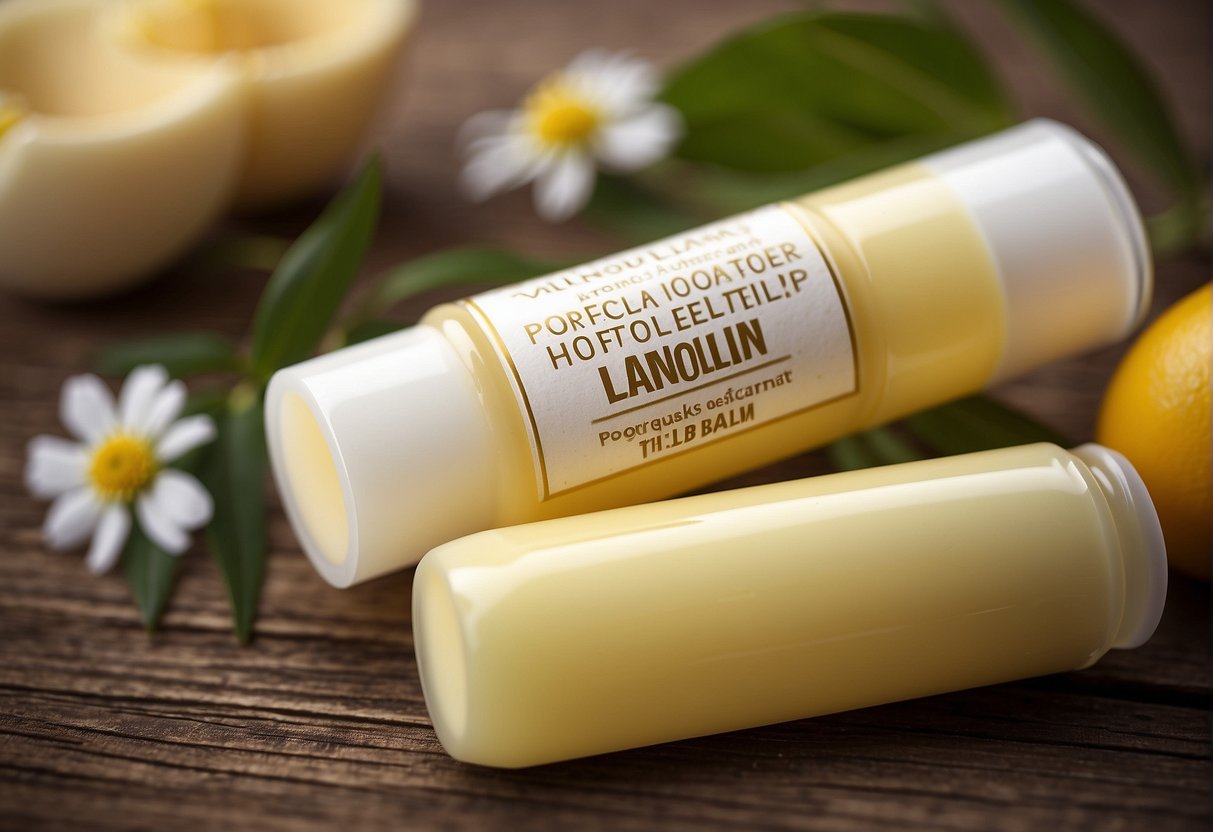
In addressing the safety and use of lanolin for chapped lips, we must consider dermatologist recommendations and the potential for allergic reactions. Lanolin offers benefits for skin care, but its application warrants caution for those with sensitivities.
Dermatologist Recommendations
We understand that lanolin can be a potent emollient, often recommended by dermatologists for skin care, particularly for chapped lips due to its ability to lock in moisture. However, the American Academy of Dermatology acknowledges that while many individuals have no issue, lanolin can cause allergic reactions in others. We advocate for informed use, with emphasis on the understanding of one's own skin conditions.
Allergy Patch Testing
Before incorporating lanolin into your lip care routine, we strongly encourage performing an allergy patch test. This simple test can determine if you have an allergic reaction to lanolin:
- Apply a small amount of lanolin on the inner forearm.
- Cover the area with a bandage for 48 hours, avoiding moisture.
- Inspect the area for signs of a reaction after removing the bandage.
We note that a lack of reaction suggests lanolin is safe for you to use, while redness, itching, or other irritation indicates a possible allergy. If a reaction occurs, it's crucial to remove the product immediately and consult with a dermatologist for alternative options.
Application Tips and Best Practices
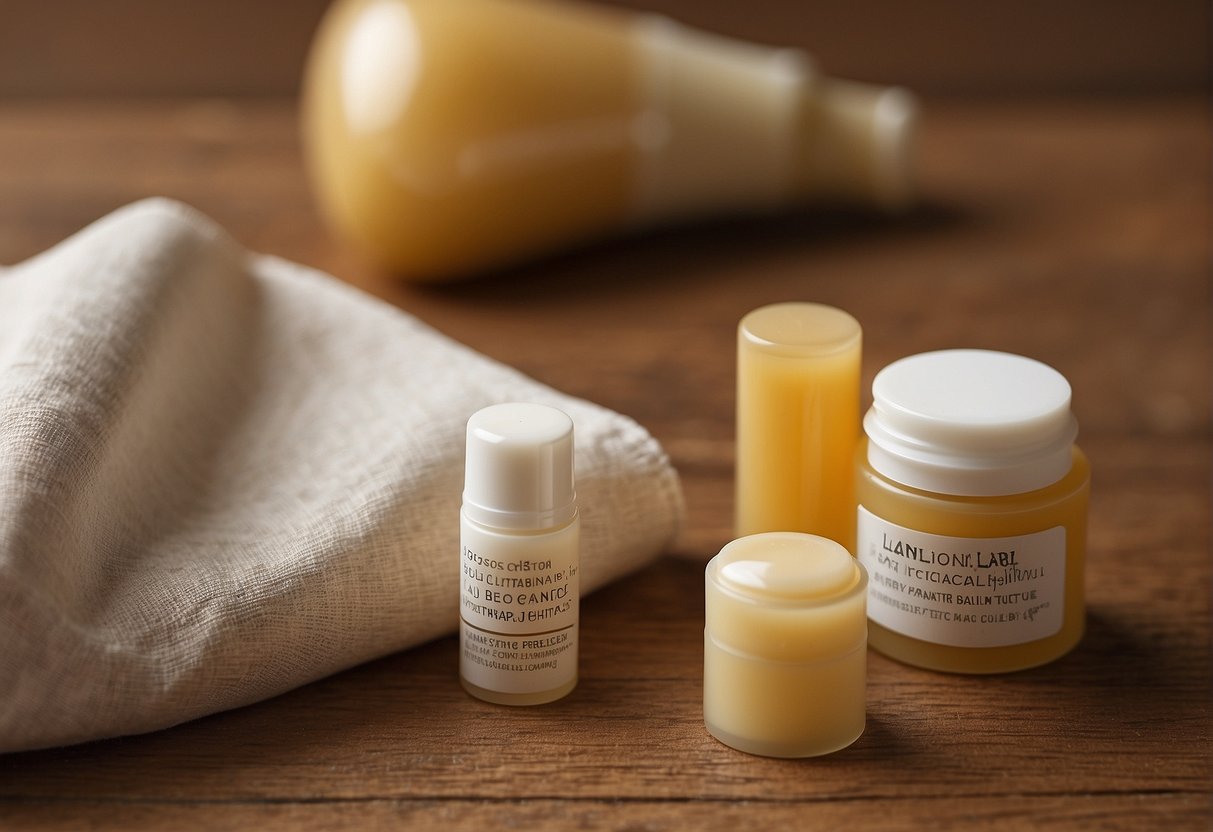
In using lanolin-based products for chapped lips, we recognize the importance of correct application and knowing when to seek additional advice. Following these guidelines will ensure effective treatment and proper lip care.
How to Apply Lanolin-Based Products
To apply lanolin-based lip balm, we recommend starting with clean, dry lips. Gently squeeze a small amount of product onto your fingertip and evenly distribute it across the surface of your lips, ensuring full coverage. For lip products containing lanolin, it is advisable to apply a thin layer, as this is typically sufficient to provide a barrier that aids in healing chapped lips. Reapplication is necessary after eating or drinking, or when you notice your lips start to feel dry again.
When to Seek Professional Advice
We advise seeking professional advice from a board-certified dermatologist if your lips do not improve with regular use of lanolin-based treatments, or if you experience any adverse reactions. It is important to consider that while lanolin is beneficial for many, some individuals may require a different medication or remedy. A dermatologist can offer personalized advice and may recommend alternative lip treatments or balms that are more suitable for your specific condition.
Frequently Asked Questions
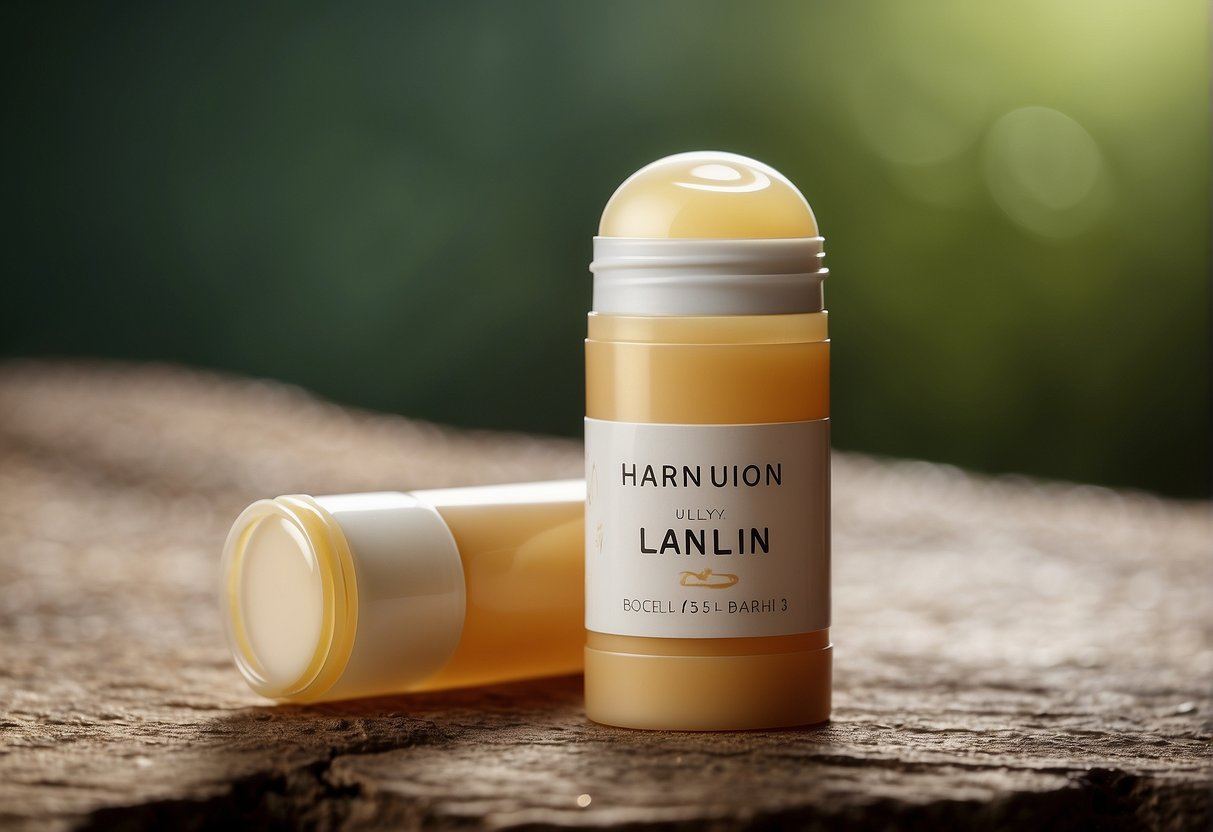
In our FAQ section, we provide clear and detailed answers regarding lanolin's use for lip care, its benefits, and important considerations for its application.
What benefits does lanolin offer for lip care?
Lanolin is known to closely mimic human skin lipids, which makes it highly effective at moisturizing dry and chapped lips. Its ability to help retain water and protect the skin barrier can lead to softer, more supple lips.
Can lanolin help to plump the lips effectively?
While lanolin hydrates and moisturizes the lips, it doesn't have a plumping effect. However, well-moisturized lips can appear fuller and smoother, which might be mistaken for a plumping effect.
How does lanolin compare to Vaseline when used as a lip moisturizer?
Lanolin is absorbed into the skin more effectively than Vaseline, which tends to sit on the surface. This means lanolin can provide deeper and longer-lasting moisture than Vaseline, which primarily acts as a barrier to prevent moisture loss.
What are the potential side effects associated with using lanolin on the lips?
Some individuals may experience an allergic reaction to lanolin, resulting in contact dermatitis. Side effects could include redness, swelling, itching, or a rash on the lips or surrounding skin.
Are there any particular groups of people who should avoid using lanolin on their lips?
People with wool allergies should avoid using lanolin, as it is a natural product derived from sheep's wool. Additionally, those who are prone to lip irritations or have known sensitivities should proceed with caution.
Why might lanolin not be recommended for individuals with sensitive skin or eczema?
Since lanolin can sometimes contain impurities or allergens from wool, it can potentially irritate sensitive skin or exacerbate conditions like eczema. It's important for those with these concerns to use highly-purified or medical-grade lanolin to minimize risks.